Science teachers can connect their lessons to real-world agriculture needs, helping students connect to agriculture careers. The Ohio Rural Educator Program (OREP) fosters those connections. The Ohio STEM Learning Network and Education Projects & Partnerships are recruiting for the third and final cohort of the program.
During the 2023-2024 school year, 15 middle school science teachers will receive the training, resources and support necessary to transition a current classroom lesson into a hands-on, problem-based learning lesson with a focus on agriculture. One current participant in the OREP program is northeast Ohio educator Heidi Hisrich. The ninth-grade science teacher at Bio-Med Science Academy STEM School is also an FFA adviser. We asked her to bring us up to date on her participation in the program so far and how the OREP training has benefited her and her students:
Ohio Rural Educator Program applications close March 24
The Ohio Rural Educator Program trains teachers to connect existing science lessons to real-world agriculture needs, so that students will begin to make connections between classroom content and future careers in agriculture.
The program includes experiential learning at Ohio State University’s Waterman Agricultural and Natural Resources Laboratory and the Farm Science Review in London, Ohio. Applications for the program close March 24, 2023. Learn more and apply here.
Q: Tell us about your teaching position and your school and what led you to participate in the Ohio Rural Educator Program.
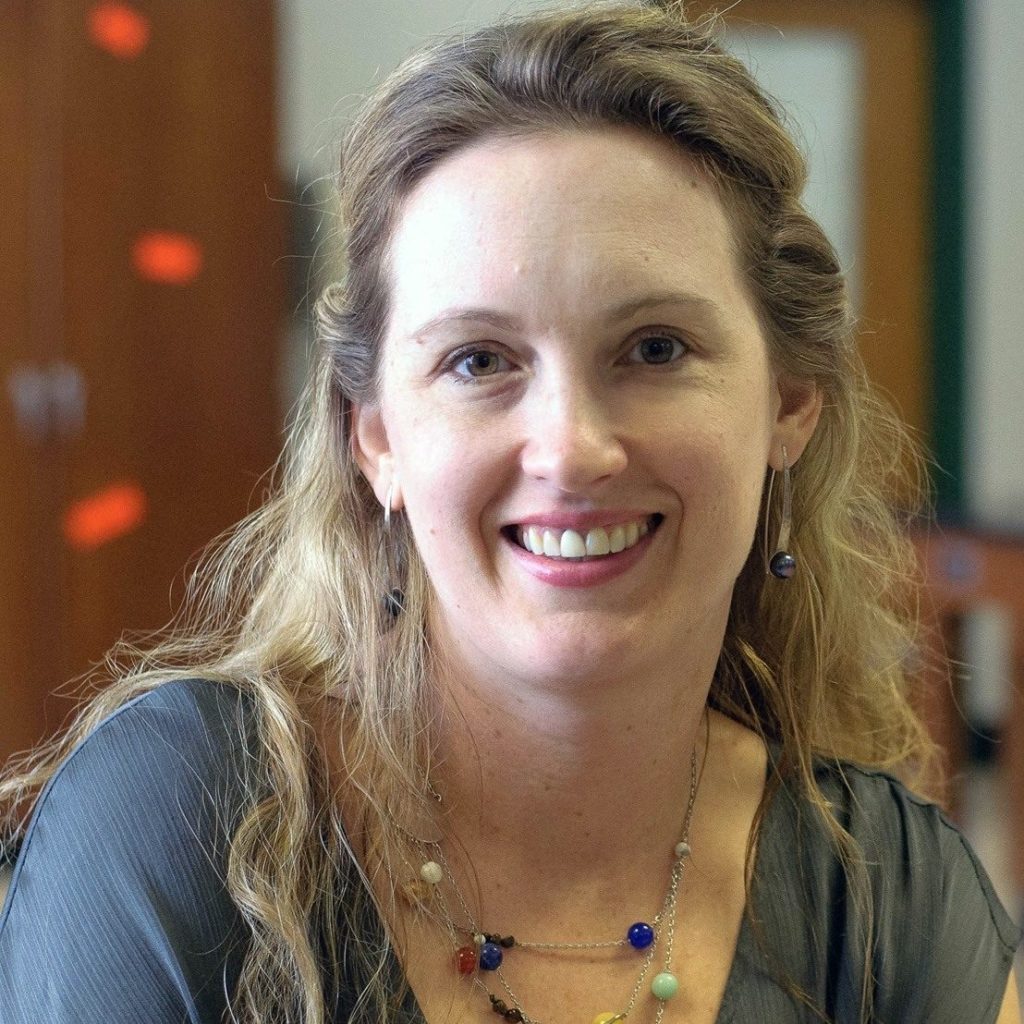
A: I teach at Bio-Med Science Academy, a public independent STEM school located in Rootstown, Ohio (Portage County). Bio-Med is open to students in Ohio who gain admission via a lottery program. We have students from several different counties and dozens of school districts throughout Ohio.
Most students come from rural areas, but some live in urban neighborhoods. Students often apply because they are interested in Bio-Med’s project-based learning (PBL) curriculum and focus on integration among subject areas. Some are drawn to our focus on careers.
I chose to participate in the Ohio Rural Educator Program because I moved back to Ohio in 2020 after living outside of the state for 20 years. Last year was my first year at Bio-Med and my first year teaching in the agriculture pathway at the school. I wanted to learn more about where I now live and teach and about how to connect my curriculum to the local area and to agriculture in an authentic way.
Q: What did you hope to learn from the program?
A: I hoped to make connections with other educators in Ohio who also work in rural districts and want or need to integrate agriculture into their curriculum. I also wanted to become stronger at using the PBL approach in my classroom. And I wanted to learn how to better connect my course (Animal and Plant Biotechnology) to agriculture, especially local agriculture.
Q: What sessions have you taken part in so far in the program? What have you found to be the most enlightening or beneficial?
A: I have done a number of Zoom sessions and also in-person training in Columbus. In September, my colleague and I spent two days with other OREP participants, and we explored Waterman Farm at Ohio State University in Columbus and attended the Farm Science Review at the Molly Caren Agricultural Center near London, Ohio, in Madison County.
It was good to have time to plan with her and to work with the other teachers. I loved all the hands-on activities. We went into farm fields and estimated crop yields; visited dairy cows and learned about the benefits and challenges of raising them; met with farmers, agronomists and others employed within the field; and conducted experiments in the classroom (like making biodiesel).
A big emphasis of the program has been on developing a PBL for my students, and the Zoom calls and in-person visits have helped tremendously with that process.
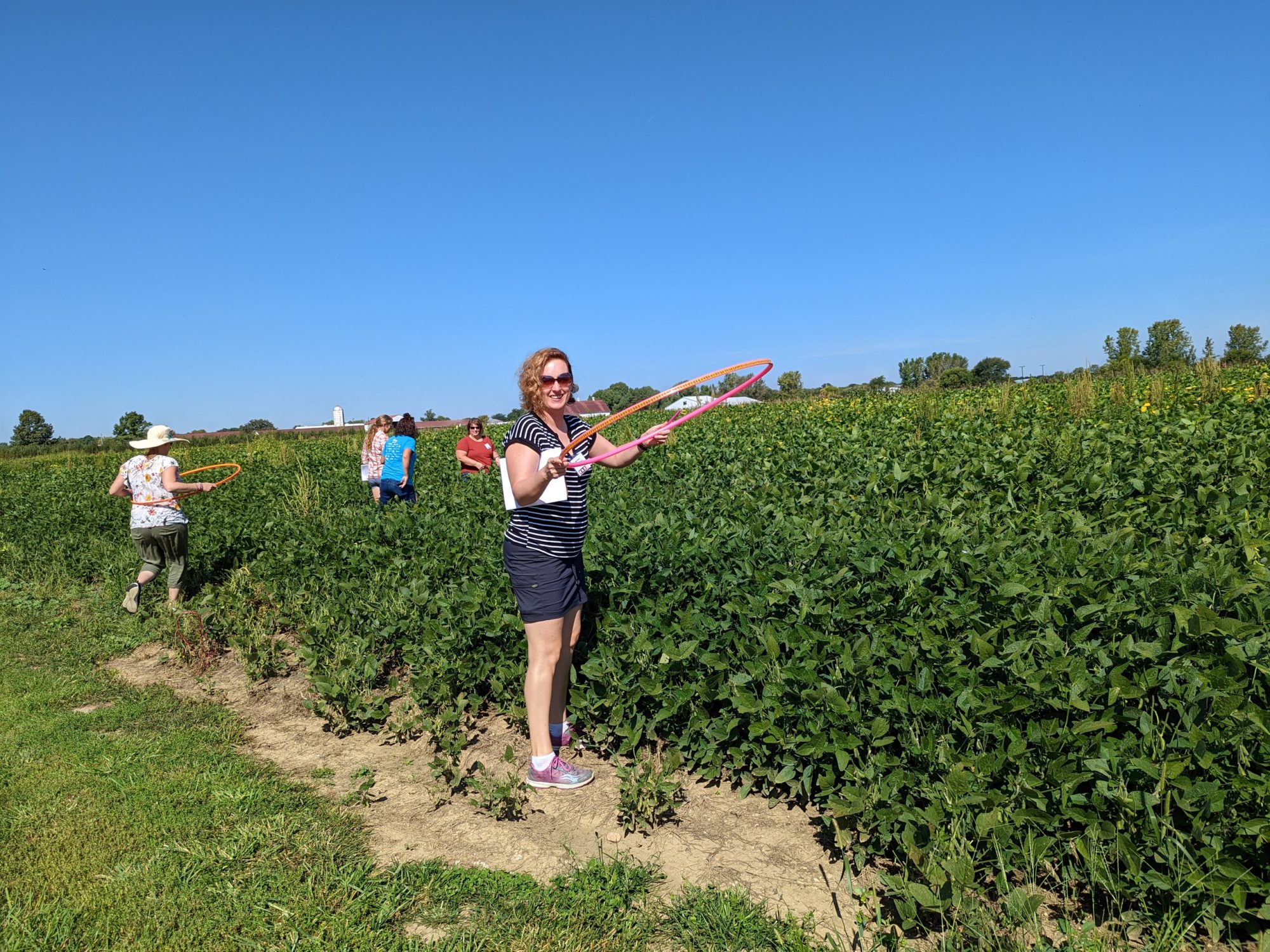
Q: From what you have learned so far, how can you help your students make connections between classroom content and future careers in agriculture?
A: One of the biggest things I have learned is that I need to find a good “hook” for each lesson. My students tend to see themselves as being uninterested in the field of agriculture. But when I can hook them at the start of a lesson, they are super engaged.
For instance, we just started my OREP-related PBL, which I decided to do on entomophagy (consuming insects). The first activity I did was an “Eat Your Bugs” challenge. I made chocolate chip cookies using cricket powder and challenged students to try them.
Many were hesitant, but almost every student found that he or she couldn’t resist warm, homemade cookies and ended up trying them. The students then had the option to try eating whole, roasted, flavored crickets, and most of the students tried those as well! The class now is well into the unit, and this is the most engaged I have seen them all year.
Also, for every activity of the unit (they have eight to ten, depending on their choices), I include an explanation of a career that that activity connects with. For example, for the “Eat Your Bugs” challenge, the career is taste tester. Many students had no idea you can get a job where you get paid to eat.
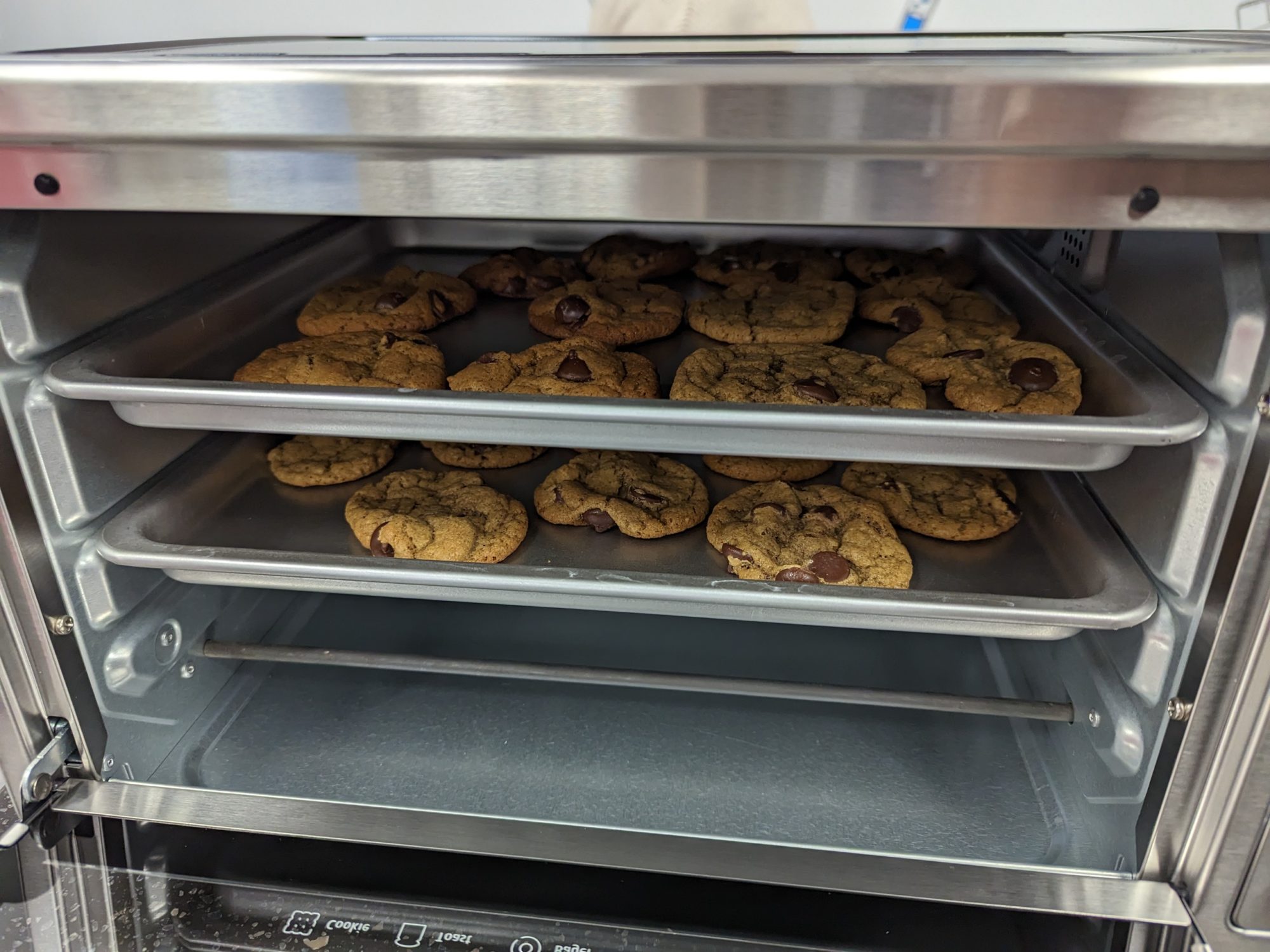
Q: As part of OREP, why did you pick entomophagy as your topic to transition into a PBL unit with a focus on agriculture?
A: I developed the unit on entomophagy during my OREP participation. It is nothing I have taught about before or even considered teaching. However, insect-based protein is a very new (at least in the U.S.) yet rapidly growing field.
I think it is very exciting that my students are learning about it and all the related careers before this field explodes (and they think so, too). I am teaching this unit now, and my students and I really love it!
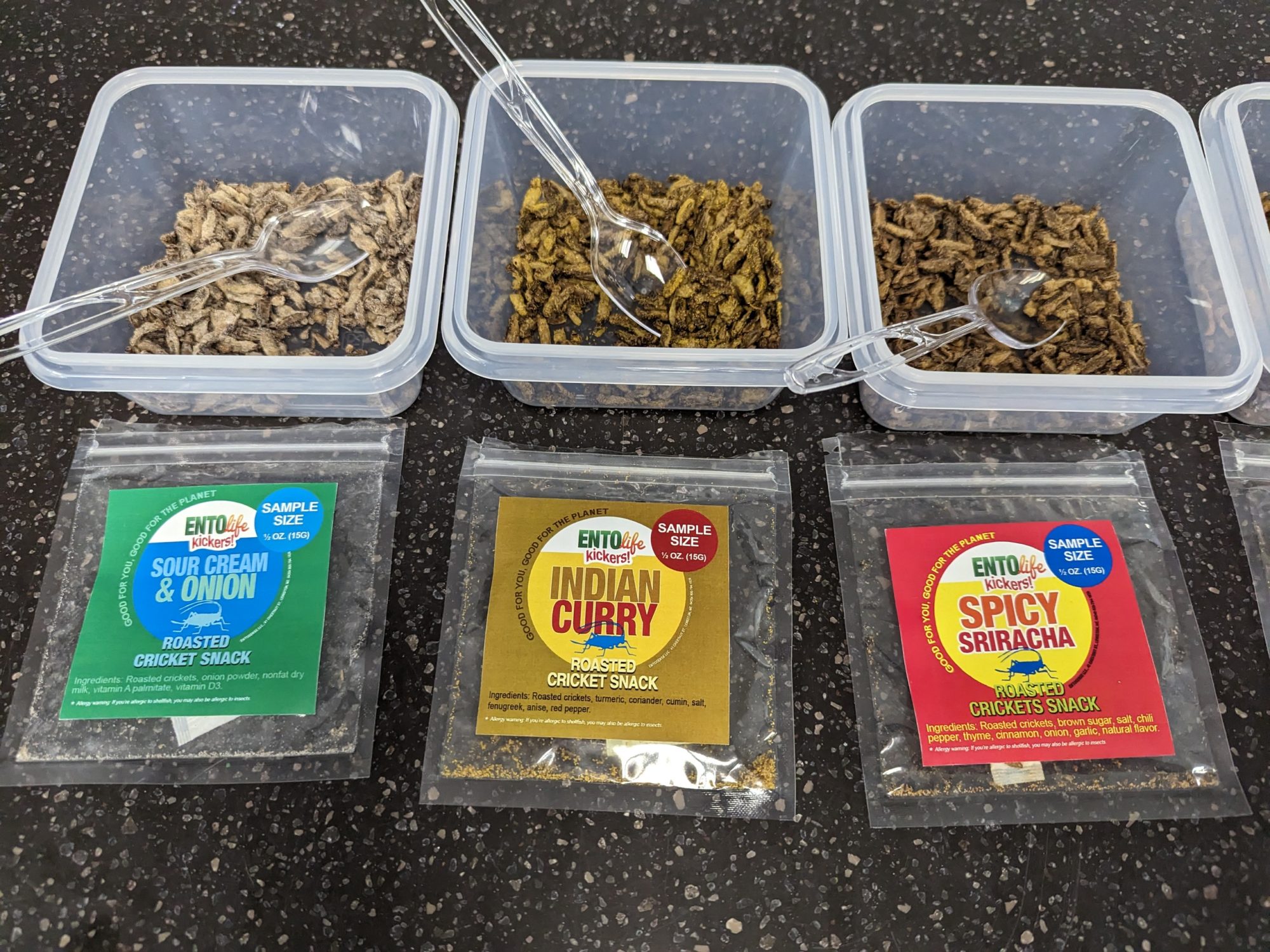
Q: You were also a recipient of a $5,000 OSLN STEM Classroom Grant in 2022. Will that grant help you put into practice things you have learned in the Ohio Rural Educator Program?
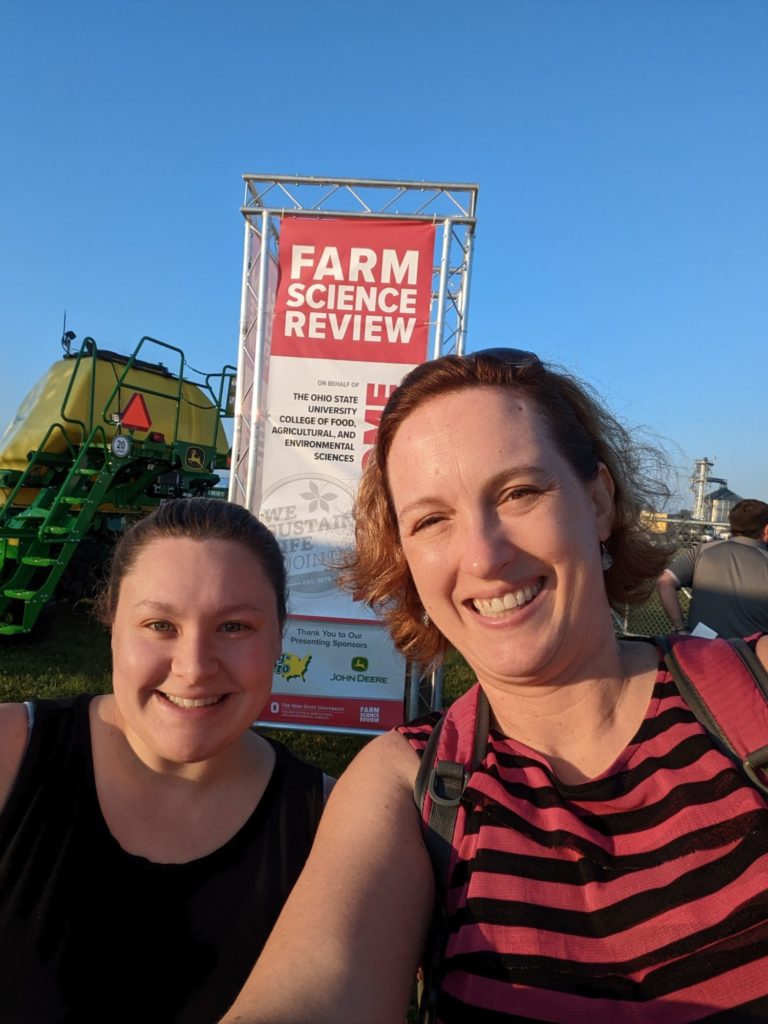
A: I could not possibly teach the unit that I planned without the classroom grant from OSLN and Battelle. My unit is based around preparing foods using insect-based protein (cricket powder). I have used funds from the OSLN grant to purchase the equipment the students need to prepare food, including mixing bowls, hand mixers, ovens, ice cream makers, electric griddles and much more. I also am using the funds to purchase the perishable food items, such as the cricket powder.
For me, access to the OSLN grant has been incredible and such a way to enhance my teaching and have a meaningful PBL for my students. I will also continue to use the equipment in units throughout this year and into future years.
Q: What advice would you give to other STEM educators who might be considering applying to the Ohio Rural Educator Program?
A: I would recommend participation, so long as the educator is willing to make the time commitment necessary. I have found it to be very fulfilling but have also needed to budget time to make sure I can participate in the Zoom sessions and the in-person field trips.
I think as teachers we sometimes take on more than we can manage, and it is important not to overload ourselves. For me, this has been a great way to network and to develop units that will engage, motivate and inspire student learning.
Q: Is there anything else you would like to share about this program?
A: I am very grateful for the opportunity to participate and for all of those who have made (and continue to make) this program available!
